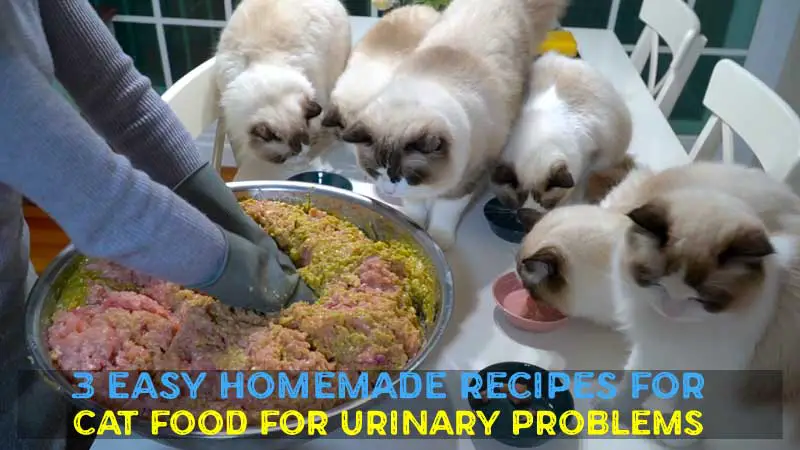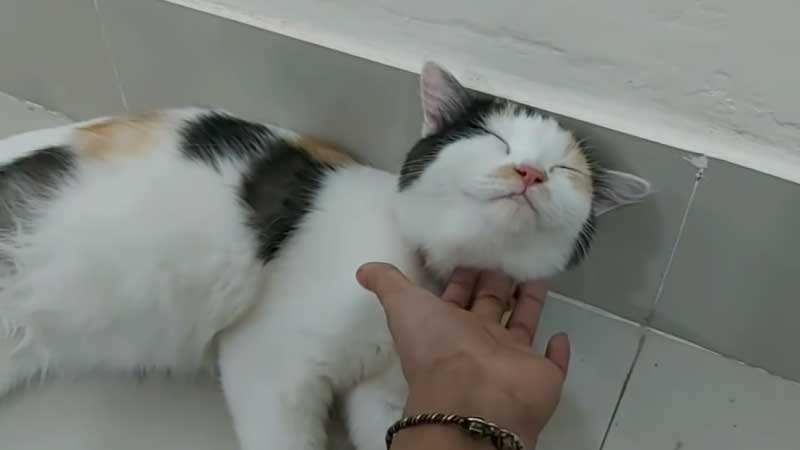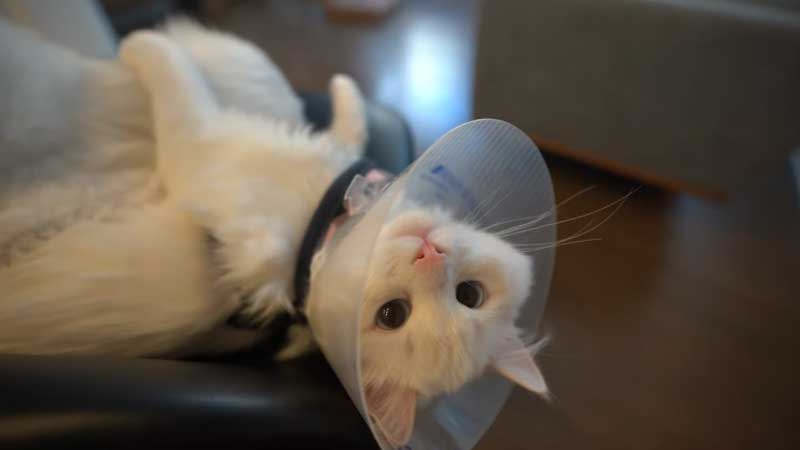You’ve noticed it, haven’t you? That distressed look on your cat’s face as they try to find relief in their litter box. Urinary issues in cats are more common than we’d like, and many times, the root of these problems lies in their diet. If you’ve found yourself pondering, “Can homemade cat food make a difference for urinary problems?”
The short answer is yes. It’s not just about what our cats eat but also about the quality and ingredients of their meals.
Whether you’re a newbie to the cat chef life or a seasoned cat parent looking for better meal options, this article is the purrfect starting point for you. Stay with us, and let’s embark on this journey to happier, healthier mealtimes!
Table of Contents
Why Choose Homemade Cat Food for Urinary Problems?

Have you ever thought about what exactly goes into that tin of commercial cat food? You might be surprised, but not necessarily in a good way. So, why is exploring the topic of homemade cat food becoming the choice for many?
Benefits of Customizing Cat Food
Several starters, going homemade allows you to handpick every ingredient that goes into your cat’s bowl. This is a game-changer, especially for cats with specific dietary needs or allergies. You can modify protein sources, adjust portion sizes, and ensure your fur baby gets the right balance of vitamins and minerals. Think about it as crafting a bespoke diet personalized to your cat’s unique needs.
Avoiding Commercial Food Additives and fillers
Many commercial cat foods, unfortunately, come loaded with additives, preservatives, and fillers that your cat neither needs nor benefits from. Some of these can be outright harmful or, at the very least, provide empty calories. By going homemade, you’re taking the driver’s seat. You can bypass the mystery meat, avoid the dubious additives, and say no to those unnecessary grains and fillers. Ultimately, you serve a pure, nutritious plate free from the not-so-good stuff.
Essential Nutrients for Cats with Urinary Problems
When our feline friends face urinary troubles, it isn’t just about the occasional incident outside the litter box. It’s a sign, a cry for help, that something is amiss. While various factors can contribute to urinary issues, the right balance of nutrients can play a pivotal role in management and prevention. So, what are these vital nutrients, and how do they support urinary health?
Essential nutrients and their role in urinary health
| Nutrient | Role in Urinary Health |
|---|---|
| Omega-3 Fatty Acids | Reduces inflammation, supports overall urinary tract health |
| Taurine | Supports kidney function, essential for overall feline health |
| Magnesium | Should be limited; excess can lead to stone formation in susceptible cats |
| Vitamin E | Acts as an antioxidant, supports urinary tract lining |
| Water | Ensures good hydration, dilutes urine to prevent crystal formation |
Remember, it’s not just about individual nutrients but how they work synergistically. Now, let’s dive deeper into two key aspects that are often overlooked but paramount for feline urinary health.
Importance of Maintaining pH Balance for Your Cat’s Urinary Health
The pH level of your cat’s urine can make a difference. A balanced urinary pH prevents the formation of harmful crystals. Certain foods can influence this balance.
For instance, diets rich in fish can make urine more alkaline, which might not be ideal for cats with urinary problems. On the other hand, meat-based diets often lead to more acidic urine. Striking the right balance, tailored to your cat’s specific needs, can be the ticket to a healthier urinary tract.
Read Also: Top Quality Small Kibble Cat Food for Older or Senior Cats
Top Ingredients for Feline Urinary Health

When it comes to maintaining our kitty’s urinary health, not all ingredients are created equal. In fact, there’s a golden list of components that shine brighter than the rest. They don’t just fill the belly; they actively promote a healthier urinary system. Let’s uncover these top ingredients and discover what makes them stand out.
List of Beneficial Ingredients and Their Benefits
- Chicken: A lean protein source that’s easy on the kidneys. It’s also a natural source of taurine, essential for overall feline health.
- Blueberries: These little berries are packed with antioxidants, supporting urinary tract health and preventing infections.
- Fish Oil (especially salmon): Rich in omega-3 fatty acids, which are known to reduce inflammation in the urinary tract.
- Pumpkin: A fantastic source of fiber, which can help prevent and alleviate constipation – a contributing factor to urinary problems in some cats.
- Eggs: Easily digestible and packed with essential amino acids. They’re a great protein boost without straining the kidneys.
- Bone Broth: Not only is it moisture-rich, but it also provides essential nutrients and minerals beneficial for urinary health.
- Cranberries: Known for preventing bacteria from sticking to the walls of the urinary tract, thus preventing UTIs.
Recommended Portion Sizes Chart for Each Ingredient

| Ingredient | Recommended Portion Size (per meal for average adult cat) |
|---|---|
| Chicken | 2-3 oz (cooked weight) |
| Blueberries | 2-4 berries (mashed or whole) |
| Fish Oil | 1/4 teaspoon |
| Pumpkin | 1/2 to 1 teaspoon (pureed) |
| Eggs | 1/4 to 1/2 egg (cooked and chopped) |
| Bone Broth | Up to 1/4 cup (as a supplement to meals) |
| Cranberries | 2-4 berries (mashed or in natural juice form) |
Please note that these portion sizes are general recommendations and may vary based on your cat’s specific needs, age, weight, and activity levels. Always consult your vet before significantly changing your cat’s diet.
Recipes for Homemade Cat Food Targeting Urinary Health

The saying, “You are what you eat,” doesn’t just apply to us humans. Our feline companions thrive when their diets are aligned with their health needs. Tackling urinary issues with diet? Here are three tempting recipes to keep your kitty purring and their urinary system in top shape.
Recipe 1:
Chicken and Cranberry Stew
Ingredients:
- 2-3 oz cooked chicken (shredded)
- 2-4 mashed cranberries
- 1/4 cup bone broth (low sodium)
- 1/4 teaspoon fish oil
- A pinch of taurine supplement (optional)
Instructions:
- Combine the shredded chicken, mashed cranberries, and fish oil in a bowl.
- Pour in the bone broth, ensuring the mixture has a stew-like consistency.
- Sprinkle the taurine supplement, if using, and mix well.
- Serve at room temperature.
Recipe 2:
Fish and Pumpkin Puree
Ingredients:
- 2 oz cooked fish (like salmon or mackerel, deboned)
- 1 teaspoon pumpkin puree
- 1/4 cup bone broth (low sodium)
- A pinch of turmeric (for its anti-inflammatory properties)
Instructions:
- Mash the cooked fish in a bowl, ensuring no bones are present.
- Add the pumpkin puree and turmeric, blending them in.
- Slowly pour in the bone broth, mixing until you get a creamy consistency.
- Serve this delightful puree at room temperature.
Recipe 3:
Turkey and Blueberry Mix
Ingredients:
- 2-3 oz cooked turkey (minced)
- 2-3 mashed blueberries
- 1/4 teaspoon fish oil
- 1/4 cup bone broth (low sodium)
Instructions:
- Combine the minced turkey and mashed blueberries in a bowl.
- Add in the fish oil, mixing it thoroughly.
- Pour in the bone broth to give a semi-liquid consistency.
- Let your cat enjoy this savory-sweet mix at room temperature.
Tips for Preparing and Storing Homemade Cat Food:
Step 1; Safety First:
Ensure all meats are cooked thoroughly to eliminate harmful pathogens.
Step 2; Variety is Key:
Rotate between recipes to provide a balanced diet and prevent food sensitivities.
Step 3; Storage:
Store leftovers in an airtight container in the refrigerator for up to 2-3 days. You can also freeze them in portion-sized batches for up to a month.
Step 4; Serving:
Always bring the food to room temperature before serving. Avoid microwaving, as it can create hot spots.
Step 5; Consult Your Vet:
Before making significant changes to your cat’s diet, always have a chat with your veterinarian for tailored advice.
With these recipes in hand, not only will you satisfy your cat’s gourmet tendencies, but you’ll also be actively supporting their urinary health. Bon appétit to your feline friend!
Commercial Alternatives and What to Look For

As much as we’d love to whip up gourmet meals daily for our feline pals, sometimes life gets in the way. Maybe you’re pressed for time, or perhaps you’re looking for a reliable commercial backup. Fortunately, the market offers several quality commercial cat food options targeting urinary health. However, it’s essential to know what to look for to make the best choice.
Importance of Reading Ingredient Labels
You wouldn’t buy a product for yourself without checking its ingredients, right? The same rule applies to your cat. Here’s why:
- First Ingredient is Key: The primary ingredient usually makes up the bulk of the product. Ideally, it should be a high-quality protein source like chicken, fish, or turkey.
- Beware of Fillers: Corn, wheat gluten, and certain by-products offer little nutritional value and are often used to bulk up the product.
- Preservatives and Additives: While some preservatives are necessary for shelf life, avoid brands with artificial colors, flavors, or controversial chemicals.
Recommended Commercial Cat Food Brands for Urinary Health
While many brands cater to feline urinary health, the following have garnered trust over the years:
- Hill’s Prescription Diet c/d Multicare
- Royal Canin Veterinary Diet Urinary SO
- Purina Pro Plan UR Urinary Ox/St
However, always consult with your veterinarian before transitioning to a new food.
Comparison of Top Commercial Brands Based on Nutrient Content
| Brand | Primary Protein | Omega-3 Fatty Acids | Magnesium Content | Moisture Content | Link |
|---|---|---|---|---|---|
| Hill’s Prescription Diet c/d Multicare | Chicken | Moderate | Low | High (in wet food) | Check Price on Amazon |
| Royal Canin Veterinary Diet Urinary SO | Chicken | Moderate | Very Low | High (in wet food) | Check Price on Amazon |
| Purina Pro Plan UR Urinary Ox/St | Turkey & Chicken | High | Low | Moderate | Check Price on Amazon |
While homemade cat food offers a personalized touch, commercial alternatives can also serve as reliable options, provided we choose wisely. Equipped with the right knowledge, you can ensure your cat gets the best, irrespective of the route you pick.
Additional Tips and Tricks for Cat Urinary Problems

Beyond diet and commercial cat food choices, there are several more avenues to explore when striving for optimal urinary health in felines. Sometimes, the little adjustments or additions to their daily routine can make a significant difference. Here are some supplementary tips and tricks to enhance your kitty’s overall well-being.
Supplements to Consider
While a balanced diet usually provides all the essential nutrients, certain supplements can offer additional support for urinary health:
- Glucosamine: Known to help protect the bladder’s inner lining.
- D-Mannose: This sugar can help prevent bacteria from sticking to the walls of the urinary tract, reducing UTI risks.
- Cranberry Extract: Much like whole cranberries, their extract can inhibit bacteria growth in the urinary tract.
- Probiotics: A healthy gut can contribute to overall health, potentially reducing the recurrence of UTIs.
However, always consult your vet before introducing any supplements to ensure they’re right for your cat.
Hydration Tips for Cats with Urinary Issues
Proper hydration is a cornerstone of urinary health. Here’s how you can ensure your cat stays hydrated:
- Water Bowls Everywhere: Place multiple water bowls throughout your home. Some cats prefer drinking from various locations.
- Running Water Appeals: Consider investing in a cat water fountain, as the moving water can be more enticing for many felines.
- Ice Cubes: Some cats enjoy playing with and licking ice cubes, which can be another fun way to increase their water intake.
- Wet Food: If your cat is on a dry diet, consider incorporating wet food with higher moisture content.
Importance of Stress Reduction & Environmental Enrichment
Stress can play a surprising role in feline urinary issues. A comfortable, engaging environment can keep stress at bay.
- Safe Spaces: Ensure your cat has safe, quiet spots to retreat, especially if you have multiple pets or a bustling household.
- Interactive Toys: Engage your cat’s hunting instincts with toys that mimic prey, like feather wands or motorized toys.
- Vertical Spaces: Cats love to climb and observe from a height. Cat trees, shelves, or window perches can be a great addition.
- Routine: Cats are creatures of habit. Try to maintain consistency in feeding times, play sessions, and even when you clean their litter box.
In the end, while diet is crucial, a holistic approach that factors in hydration, environmental enrichment, and the right supplements can pave the way for your cat’s optimal urinary health.
You may also like: Cat Stopped Eating Wet Food But Will Eat Dry
Frequently Asked Questions (FAQs)
How long does it take to see improvements with a homemade diet?
The time can vary based on the individual cat and the severity of their urinary issues. Generally, with a well-balanced homemade diet tailored for urinary health, some improvements can be noticed within a few weeks. However, for some cats, it might take a couple of months. Always monitor your cat closely and consult your vet regarding any changes.
Can all cats eat a diet designed for urinary problems?
While a diet designed for urinary health won’t harm a healthy cat, it’s tailored to address specific issues. A balanced general diet might be more appropriate if your cat doesn’t have urinary problems. Always consult with a veterinarian before making significant dietary changes.
How often should I change the recipes for variety?
Variety is essential to ensure your cat gets a range of nutrients and doesn’t grow bored. Rotating recipes every week or every few days can be beneficial. However, when introducing a new recipe, make the transition gradually over a week to avoid upsetting your cat’s stomach.
What are other non-dietary measures to help with feline urinary issues?
Besides diet, ensure your cat has ample fresh water available. Regular vet check-ups, reducing stress in your cat’s environment, providing a clean litter box, and encouraging play and exercise can all positively impact urinary health.
How can I determine if my cat’s urinary issue is diet-related or due to other causes?
While diet plays a significant role, other factors like stress, genetic predisposition, or infections can contribute to urinary issues. The best way to pinpoint the cause is a thorough evaluation by a veterinarian. They might recommend tests, like a urine analysis or ultrasound, to get a clearer picture.
Final Verdict
Whether you choose the homemade route, a commercial one, or a mix of both, always prioritize your cat’s individual needs, consult regularly with your veterinarian, and monitor for changes, both good and bad.
Incorporating non-dietary measures and understanding the significance of hydration, stress reduction, and environmental enrichment can further support your cat’s urinary health. But above all, your love, patience, and commitment are the most crucial ingredients in your cat’s journey to optimal health.




